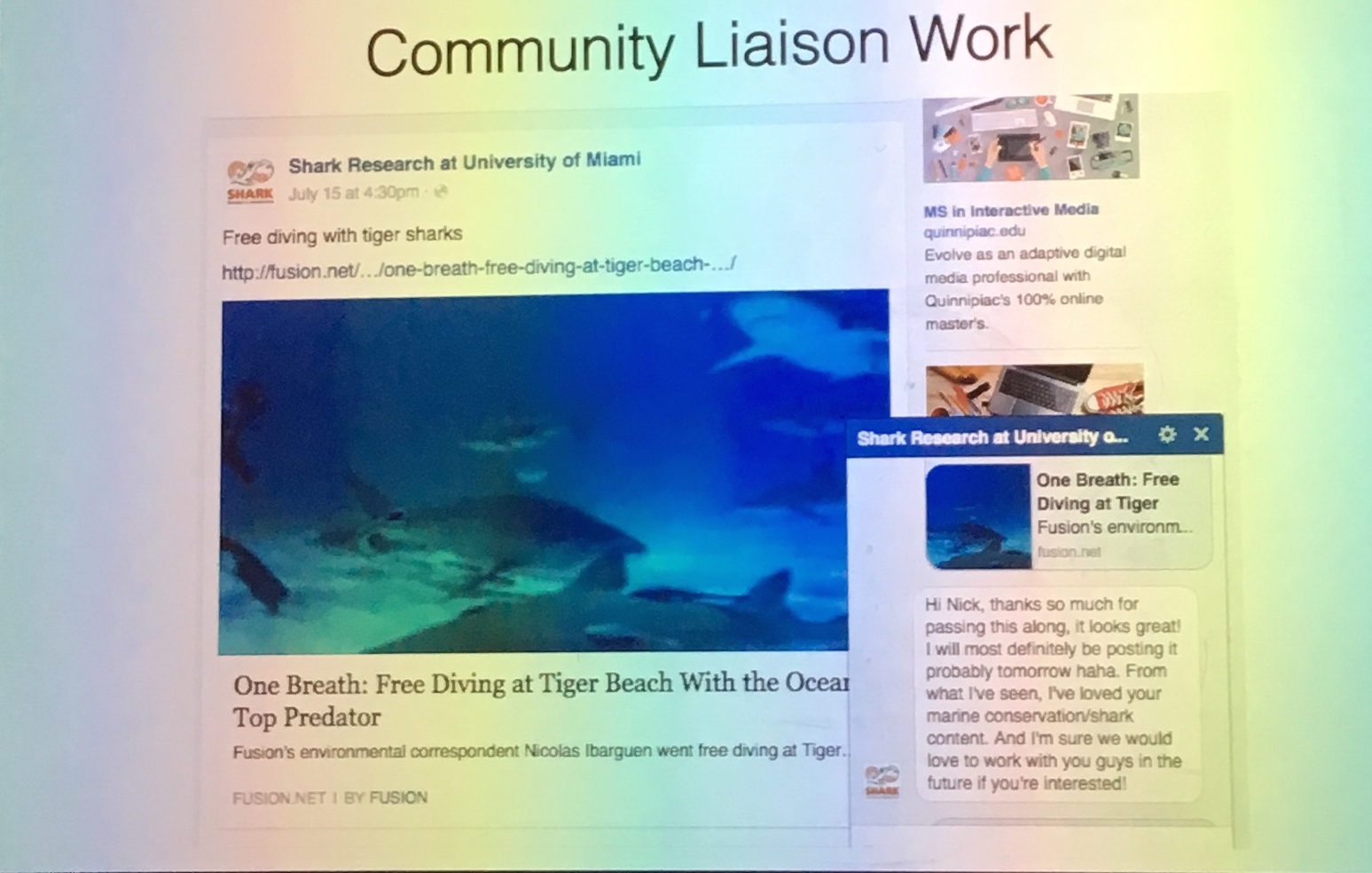
“We can figure out what it might be, and then figure out how it slots back into the production machine of one of our brands,” he said.
In their presentation at an event sponsored by MIT’s Comparative Media Studies/Writing program, Ford and his colleague Federico Rodríguez Tarditi discussed the center’s role within Fusion and Univision and highlighted some of the projects they’re working on.
This fall, for instance, Fusion will release a puzzle game about gerrymandering called Rigged. The center helped connect Fusion’s investigative and interactive department’s with Hitcents, a video game development company, to create the game, and it will accompany a larger documentary that Fusion is releasing about gerrymandering.
The center has also consulted with a team at Fusion that’s worked with NASA to produce Mars 2030, a VR experience about settling the red planet.
These types of products, Ford said, will ultimately allow Fusion to compete in a media landscape dominated by platforms such as Facebook:
We’re playing wholly in their spaces. A Facebook or a YouTube or a Twitter aren’t going to launch new features, new products unless it serves their primary business purpose, which is not necessarily ours. Which is fine. We have done great experimentation with those platforms.
For us, it’s of interest to think of the things that those platforms don’t necessarily do. Or, if we want to do those things, can we only do it on those platforms?
Of course, because when you do something only on Twitter, you shut out anyone who doesn’t use Twitter, or when you do something only on Facebook, you’re forcing people to go through a certain network site.
From a business perspective too, in the media industry in general, we have to balance playing with the platforms where people are engaging with media content, but also making sure we don’t only engage in those spaces because then you build businesses that are wholly dependent to social network sites and distribution platforms that aren’t yours.
So part of our job, and getting back to slow and fast culture, is to run a series of experiments that are less about the day-to-day production that we’re doing today but might answer questions that we don’t want to lose track of.
If we’re trying to push a piece we’re doing today out to as many places as possible, we’re probably going to tell that story on our Facebook page where we have a massive following…It’s very much a balancing of strategies.
Beyond specific projects, the center is looking to expand partnerships and find new ways for Fusion and Univision to work with others in academia and industry. “A lot of our job is thought leadership as well: helping sponsor conferences…going to conferences, speaking at conferences, being parts of boards and going to spaces where people aren’t mainly thinking about us,” Ford said.
And to spearhead outreach to various groups, the center has hired two dedicated community liaisons, Ford said:

How do we eliminate the guesswork to just assume that people who care about these issues know that we’ve come out with an investigation about it and that we’re building relationships with the types of groups we care about…The answer eventually was that it’s nobody’s job, and you guys are in charge of building a team that does that, which is the downside of suggesting new ideas. It adds to your responsibilities…
Media companies know how to talk to outside groups in two cases: When we’re making a product or when we’re trying to promote that product. It’s either: Can we interview you or will you share this? We’re interested in moving beyond that part of the conversation. Of course, we would love if Keep Your Bible Out of our Vaginas shares one of our pieces. That’s not the main goal, necessarily, though of reaching out to these groups. It’s trying to understand what are the underreported stories. If they’re a group that’s focused on this issue day in and day out, what is it that they’re not hearing? How is it that we can take leads back to our journalists?
Ford and Tarditi said these are still early days for the center, and they plan to add additional staffers and take on new projects in the coming months.
Their talk was recorded and released as a podcast by the MIT Comparative Media Studies/Writing program. You can listen to the full talk below: